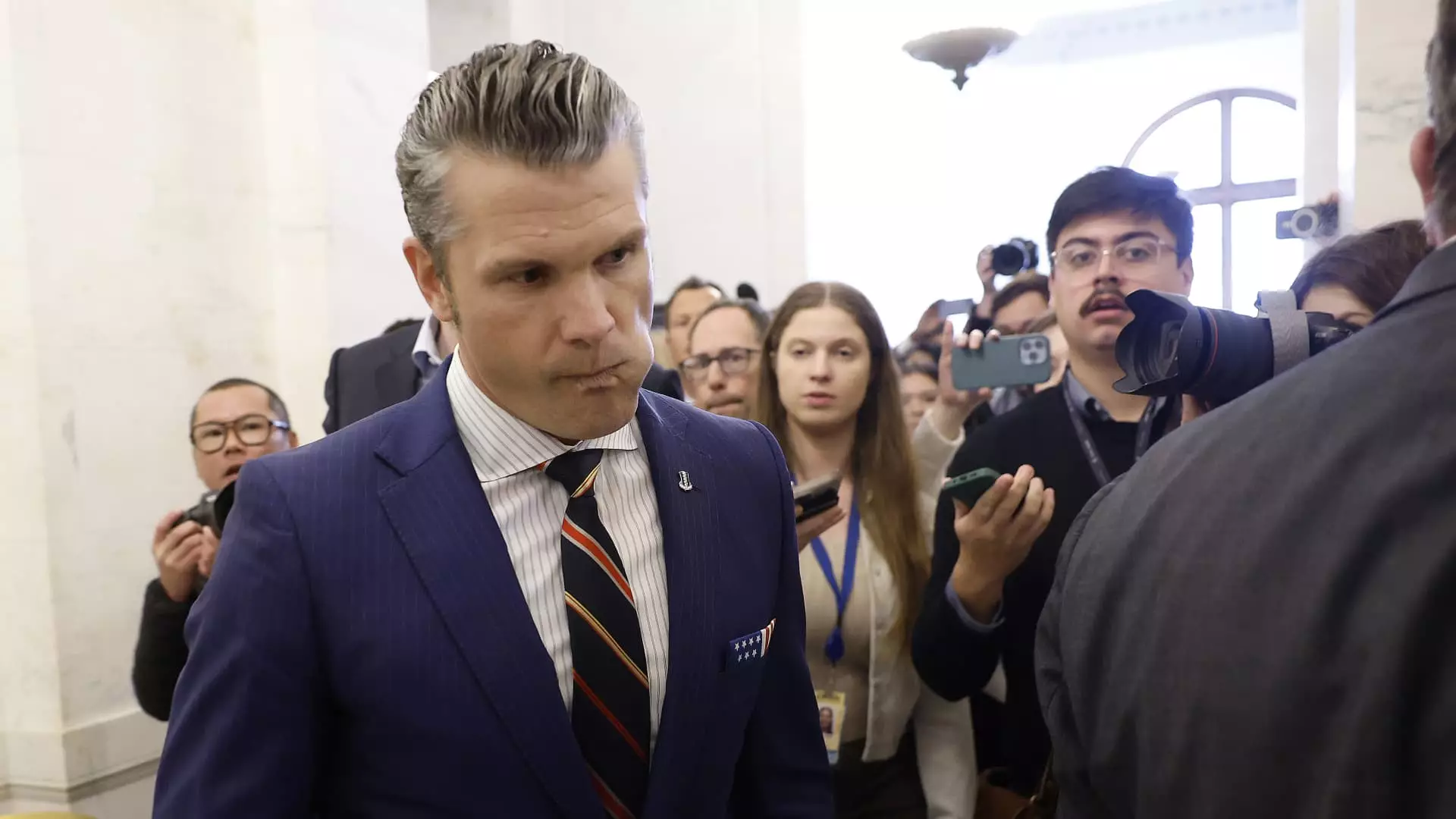The nomination of Pete Hegseth, a well-known media personality and military veteran, to lead the Pentagon under President-elect Donald Trump has unveiled a myriad of controversies that could jeopardize his future role. Recent investigative reports have painted a troubling picture of Hegseth’s past, revealing alleged misconduct during his time managing non-profit organizations aimed at supporting veterans. This article delves into the various allegations against Hegseth, examining how his past behavior might affect the credibility of his nomination and the potential implications for military leadership.
A report published by The New Yorker has brought forth serious allegations regarding Hegseth’s conduct while serving as the president of the Concerned Veterans for America (CVA). According to the article, compiled from a whistleblower complaint from 2015, Hegseth is accused of engaging in passive and active forms of misconduct that included excessive alcohol use and sexually inappropriate behavior towards female staffers. Whistleblowers allege that he was so intoxicated at events that he needed assistance to leave and even required restraint at a strip club in Louisiana. Such accounts, if proven true, cast a large shadow over Hegseth’s leadership capabilities and raise questions about accountability and professionalism within veteran advocacy groups.
Additionally, the report suggests a problematic culture at CVA, where women were reportedly categorized as “party girls” or “not party girls,” highlighting a disturbing atmosphere of objectification and mishandling of professional relationships. The allegations indicate that Hegseth and his management team did not just fail in their duties as leaders but created an environment where misconduct was tolerated or even encouraged. This expression of toxic workplace dynamics is alarming, particularly given the organization’s mission to serve and advocate for veterans’ interests.
The scrutiny of Hegseth’s leadership extends beyond allegations of personal misconduct; it also encompasses significant issues related to financial governance at the nonprofits he has led. During his tenure at another organization, Vets for Freedom (VFF), Hegseth allegedly ran the organization into severe debt, ultimately resulting in loss of control by its founding members. Reports indicate that the organization’s financial situation became so dire that donors had to intervene to safeguard their contributions and eventually pushed Hegseth out as the leader. This narrative raises concerns about fiscal responsibility, especially when heading organizations that rely heavily on donations to fulfill their missions.
Nonprofit organizations that advocate for veterans are crucial systems for support, and the ramifications of mismanagement can drastically affect the lives of those they are designed to help. The financial troubles described add layers to Hegseth’s suitability for a prominent role in national security and veteran affairs if his long-term financial oversight is called into question.
Adding to the continuing saga of complications surrounding Hegseth is an alleged incident of sexual assault from October 2017, which occurred in a hotel setting during a Republican women’s convention in Monterey, California. Although he was cleared of any criminal charges, the mere existence of such allegations can complicate his public image and the administration’s agenda. Details from police reports reveal that Hegseth was markedly intoxicated during the encounter, suggesting a pattern of irresponsible behavior. The unfortunate timing of the allegations—occurring simultaneously with personal turmoil from a divorce—further muddies Hegseth’s public image.
Moreover, reports of a civil settlement reached with the alleged victim tacitly acknowledge the complexities of the situation without Hegseth admitting guilt. Critics may question whether such legal maneuvers are attempts to silence dissent and evade accountability. The implications of his behavior extend beyond personal matters into the domain of how military leaders are held to account, raising critical questions on the moral fiber required for leadership in high-profile positions.
Amidst these burgeoning controversies, the question arises: can a figure with such a problematic past effectively lead military initiatives and represent veterans’ issues? The Pentagon requires its leaders to embody principles of integrity, accountability, and clarity in purpose. Hegseth’s nomination is facing inevitable scrutiny and calls for transparency in order to enhance credibility. President-elect Trump, who has often been a polarizing figure himself, must weigh these issues carefully—both for the integrity of the office of Secretary of Defense and for the morale of military personnel and veterans.
Pete Hegseth’s nomination to lead the Pentagon is charged with significant controversies that expose not only his past behavior but also highlight broader concerns about leadership styles and organizational culture in veteran advocacy. As the confirmation process unfolds, it will be critical to observe how these allegations are addressed and what they signify for the future of military leadership in America.

Leave a Reply